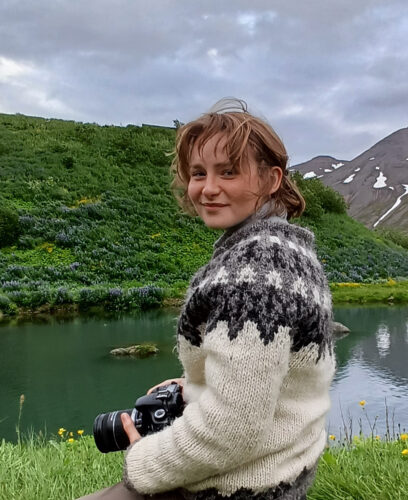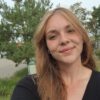What is your first name?
Guðrún
When did you do the IDA master?
2021-2023
How was the IDA Master helpful for what you are doing right now?
IDA was an excellent preparation for my PhD, providing me with the insights, skills and confidence to pursue research. My current project is in the field of psychopathology, and I am sure the individual differences goggles have positively affected how I approach the subject. Indeed, I see so many parallels between personality science and the science of psychopathology, and it’s cool to be able to contribute to the integration of these.
What was your favorite course? And why?
It’s a tough competition between ‘Theoretical Models’ and ‘Dynamics of Individual Differences’. Both courses provided a great foundation for understanding what personality is in its broadest sense (i.e., way beyond the popular ‘Big 5’), the forces that influence it and how it changes across the lifespan. I certainly left these courses with a much more nuanced perspective.
What was your favorite moment of the time as an IDA student?
This is a difficult one. What springs to mind is the first-year-paper conference, where we presented our research projects to our fellow students and supervisors and then celebrated afterwards with drinks, bites and interesting conversations. It was a very rewarding moment and created a real sense of community.
What was your motivation to finish your studies ?
The process itself was quite rewarding, so I usually felt motivated to finish. But when things got tough (as they do), I guess I was also driven by the vision of how much I would gain from it and the doors it could open for pursuing and contributing meaningfully to something I really like.
Did you experience stress or pressure in your studies, and if yes how did you deal with it?
Yes, I most certainly did. It’s a very challenging program that pushes you to your limits if you fully embrace it. But it helped to approach it with a growth (rather than performance) mindset and gratitude for the fantastic opportunities it brings. It also helped that our cohort was very close-knit, and we were really ‘in it together’. It goes without saying that proper rest and decompression are also key here.
What can you advise current or future IDA students?
Really embrace it as an opportunity for growth and take control of your own learning. One of the big advantages of this program is the freedom you get to carve your own path, but this does require some introspection, homework and initiative. Of course, don’t put too much pressure and try to enjoy the ride 😉
How was your overall experience in the master?
It was really nice and rounded. It’s not just education; it’s also character-building. And importantly, it’s a community. Science is a team sport, after all!
What did you do in your international traineeship and how did you like it?
I attended a conference on narrative identity in Lille, France, and presented a poster on my master’s thesis project. I enjoyed it a lot. It was very stimulating and fun, and it was nice to share the fruits of my labour.
Are you still in touch with other alumni students?
Yes, we keep in contact and try to organise meet-ups every once in a while. It’s nice to follow what everyone’s getting up to. I’m actually also still collaborating on a couple of projects with fellow alumni.
How did you experience the relationship with your teachers?
It was great! I experienced a very friendly, respectful and supportive atmosphere. Of course, they also really challenged us – as they should!
Did you know from the beginning what you want to do after your master? How did you find out what you would like to do?
No, when I started, I was not sure I wanted to pursue research more seriously. But this gradually became clear as I realised how much I enjoy the stimulating atmosphere and felt that doing research would play to my strengths and passion for science.










Be First to Comment